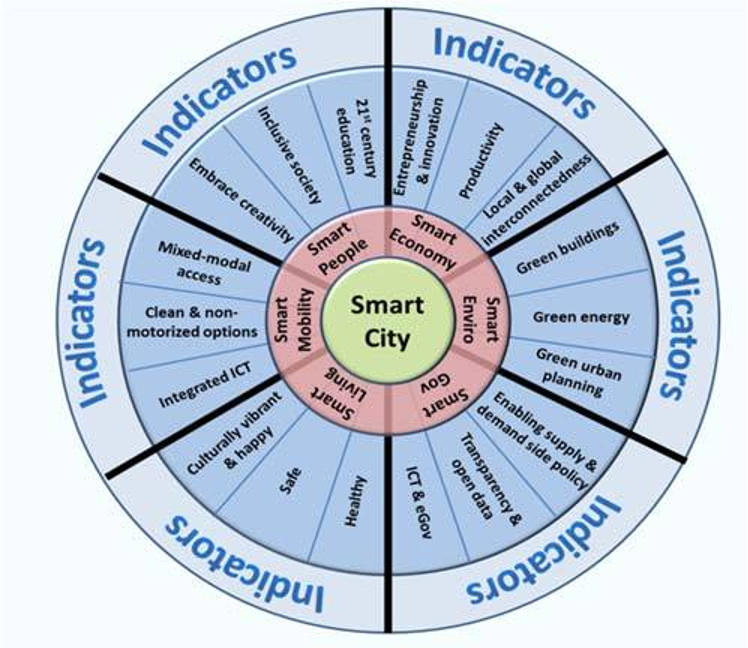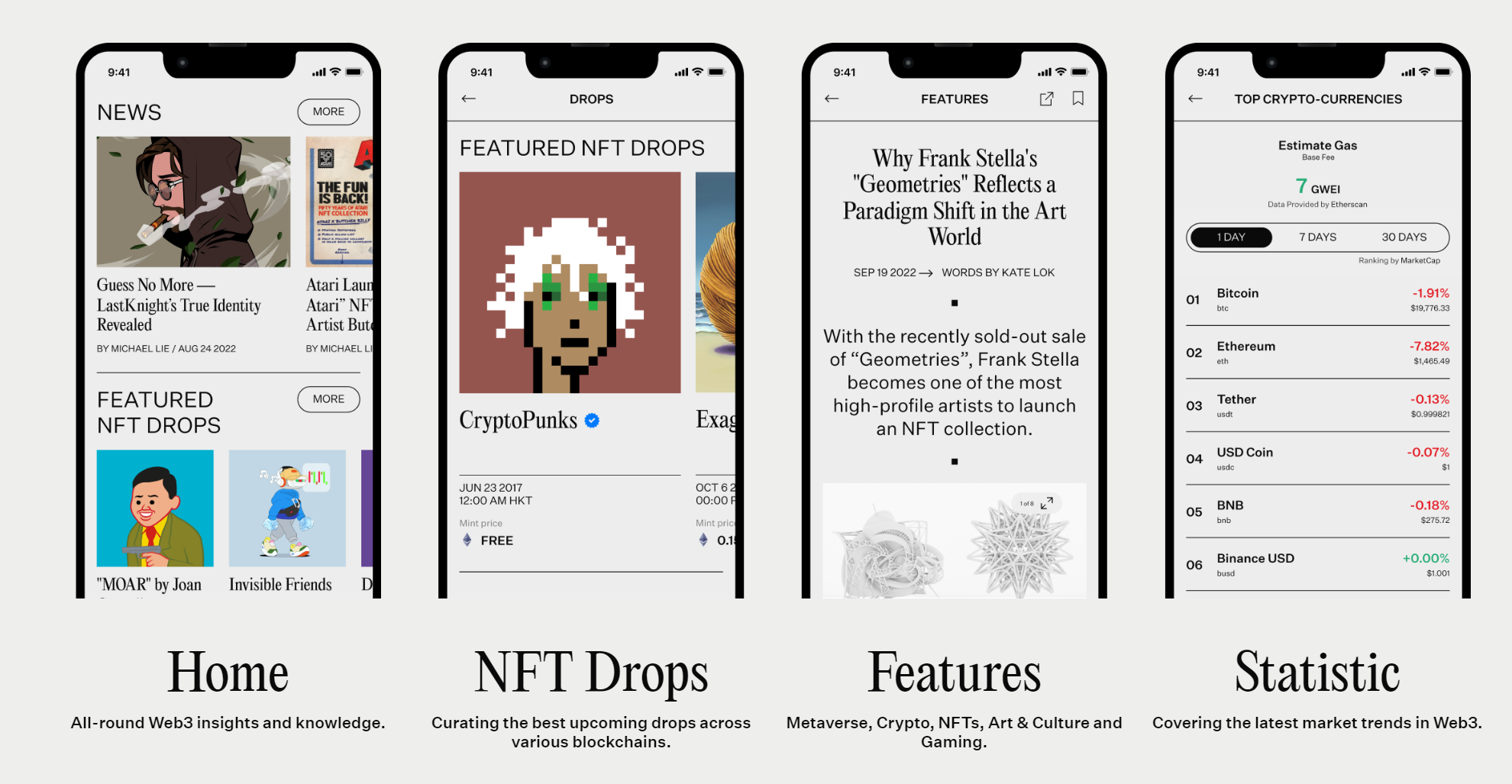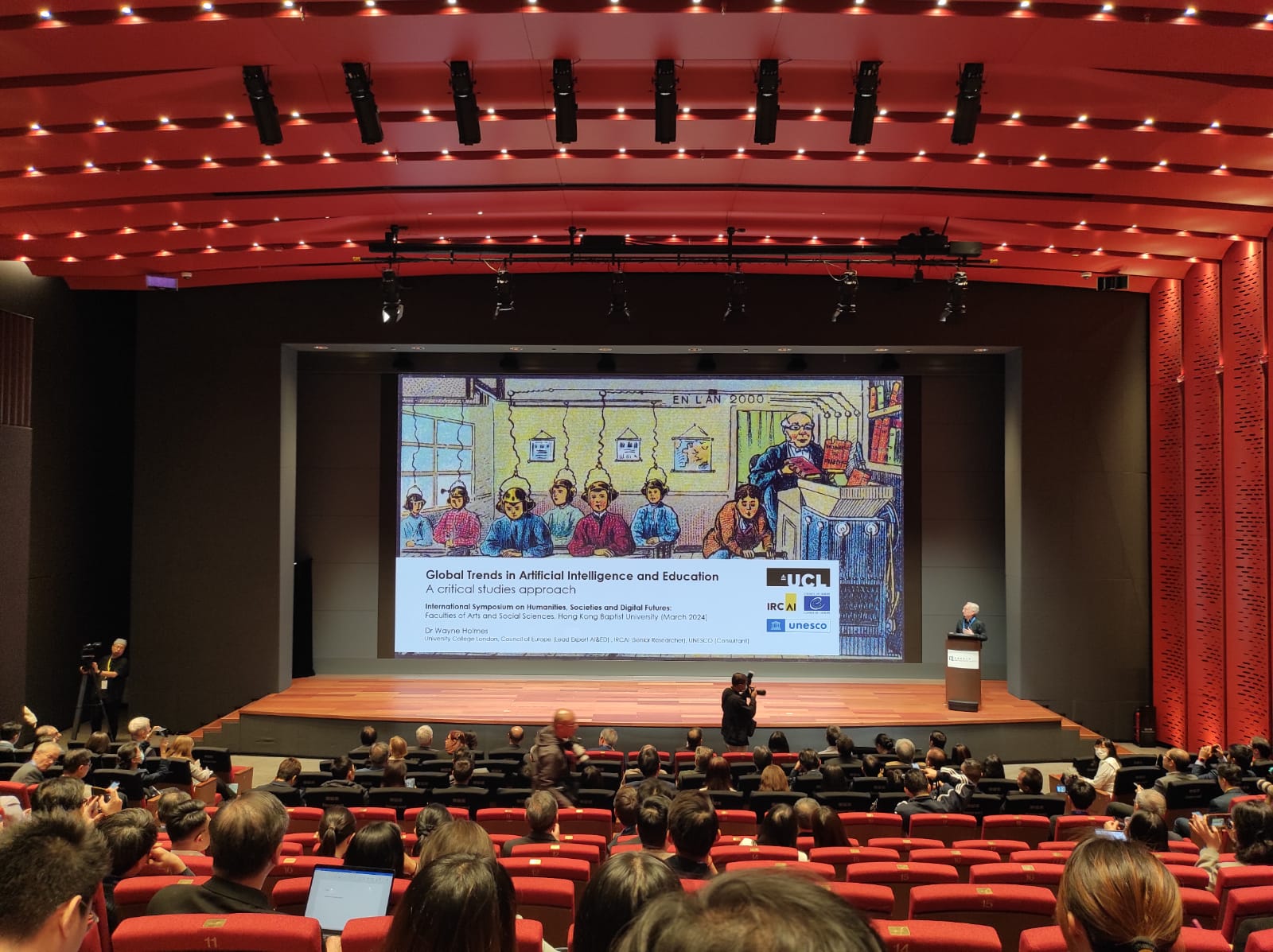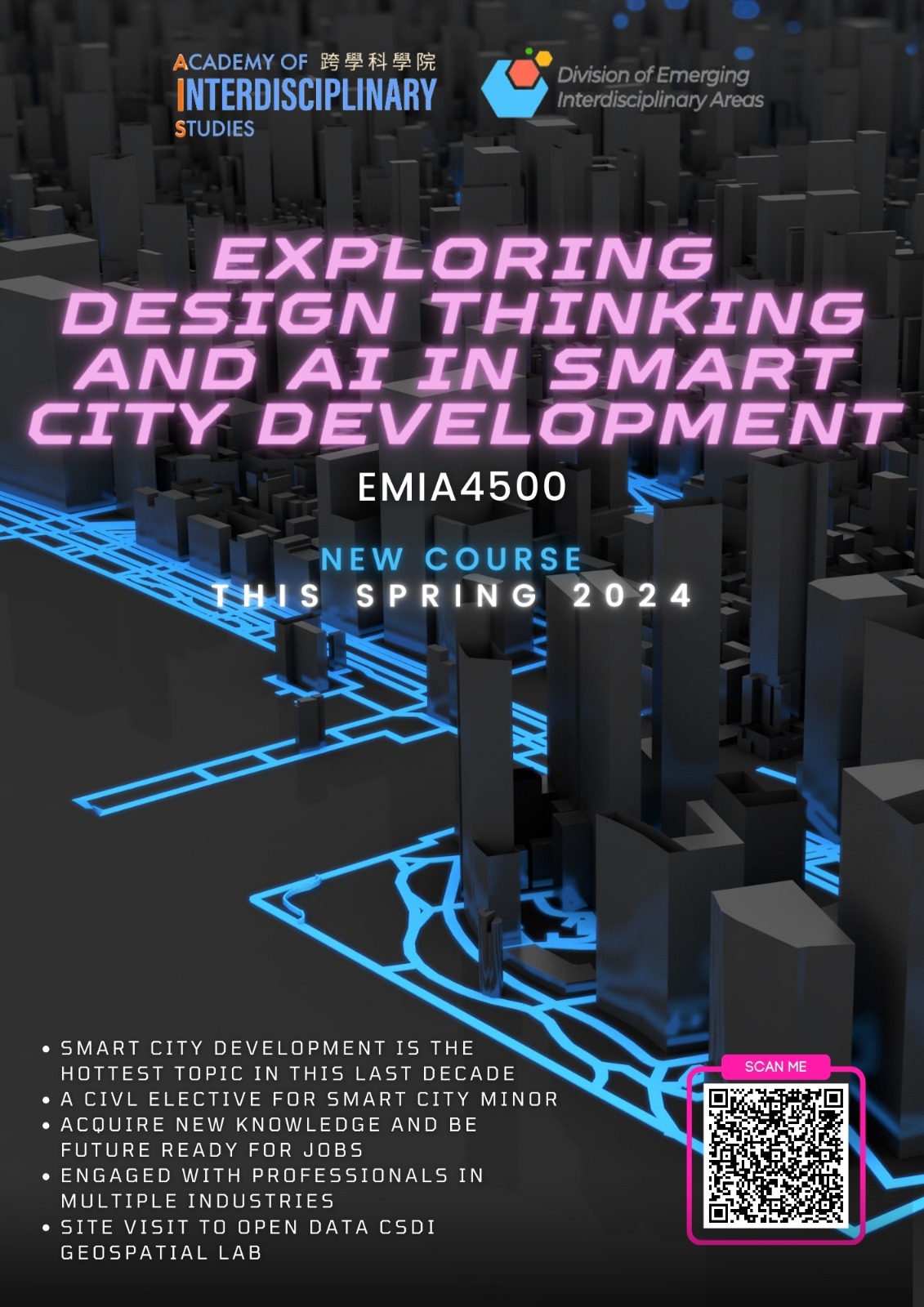New EMIA4500A course in Smart City Development at HKUST – from Academy of Interdisciplinary Studies
As cities around the world embrace the concept of smart city development, it becomes crucial to understand the key characteristics that define these intelligent urban ecosystems. In this blog post, we will delve into the definition of smart cities based on the influential work of Giffinger et al (2007), which outlines the six areas that lay the foundation for smart city initiatives. Furthermore, we will explore how these areas have been adopted and expanded upon by Dr. Boyd Cohen to create the Smart City Wheel. Finally, we will highlight an exciting new EMIA course offered at HKUST AIS called “Exploring Design Thinking and AI in Smart City Development,” which equips students with the knowledge and skills to shape the cities of the future.
Course Syllabus – Click this link
New AIS Course has been approved EMIA4500A Exploring Design Thinking and AI in Smart City Development
The six areas / dimensions of the smart city development are listed below.
(1)Smart Economy – Innovation and Competitiveness
(2)Smart Mobility- Infrastructure and Transport
(3)Smart Environment – Resources and Sustainability
(4)Smart People – Creativity and Social Capital
(5)Smart Living – Culture and Quality of Life
(6)Smart Governance – Participation and Empowerment

New EMIA4500A Special Topic courses for Spring 2024 (Feb)
The title of the new course will be called “Exploring Design Thinking and AI in Smart City Development” and is targeted at both undergraduate and postgraduate students who had already some knowledge and prior learning in design thinking taking courses such as EMIA2020 or TEMG3950 and other related courses such as ENGG1300, ISDN2000/CORE2261, ISDN220, ENVR1070
Full description of the course and rationale of introducing this course
The course begins with an introduction to smart city development. It then explores the application of Artificial Intelligence (AI) and Design Thinking (DT) principles to solving smart city problems – examining case studies and best practices. This course will introduce the six areas of smart city development advocated by Dr. Boyd Cohen namely – Smart People, Smart Economy, Smart Environment, Smart Government, Smart Living and Smart Mobility. For each of the six areas, a lecture will be given and the lecture will be augmented by industry professionals, protagonists or start-up entrepreneurs who will be invited to share as a guest speaker about their involvement and use cases in smart city development. A special workshop and site visit will also be arranged to visit the Geospatial Lab funded by the HKSAR Government’s Development Bureau (https://csdigeolab.gov.hk/en/) to explore the use of open data and common spatial data infrastructure (CSDI) in developing all kind of smart city innovations and applications. Assessment of learning and knowledge will be a combination of formative assessment, critical reflection and participation in active discussions and group project work.
Course Rationale (Why this course is good for you ?)
Smart city development has emerged as a significant area of focus in academic research, technological advancements, innovations, and public policy in recent years (Chun et al., 2019). This course aims to provide students with a strong foundation in this multidisciplinary field. By integrating Design Thinking (DT) principles, students will have the opportunity to apply their learning to real-world problems, with a specific emphasis on utilizing artificial intelligence (AI) and open data. The course aims to develop socially responsible graduates who possess a vision of sustainable development and the ability to apply technology for strategic planning and design. Students will learn from cases how key technologies such as IoT, AI, big data, and cloud/edge technologies and their application are creating impact in various aspects of society, including transportation, healthcare, environment and accessibility. They will also explore related policies and critically evaluate the potential barriers and impact of adopting smart city concepts from an interdisciplinary perspective. Guided by DT, students will develop human-centric design skills and collaborate to co-design feasible smart and sustainable solutions. The course also introduces trending and important topics such as sustainability, diversity, and equality – thereby offering a broad understanding of their relevance in the context of sustainability and smart cities. Through field visits, guest lectures, and engagement in designing solutions, students will cultivate a deeper awareness of the use of DT and AI in smart city development projects. This course provides augmentation to their core discipline and majors while engaging in a case-based learning environment.
- Understanding the Characteristics of Smart Cities:
Giffinger et al (2007) identified six characteristics that define smart cities: Smart Economy, Smart Governance, Smart Mobility, Smart Environment, Smart People, and Smart Living. These areas encompass various aspects of urban life, including sustainable development, digital connectivity, efficient transportation, citizen participation, and quality of life improvements. - The Smart City Wheel:
Building upon Giffinger et al’s work, Dr. Boyd Cohen expanded the concept of smart cities by introducing the Smart City Wheel. This framework visualizes the interconnections between different dimensions of a smart city, providing a holistic perspective on urban transformation. The Smart City Wheel includes additional dimensions such as Smart Energy, Smart ICT, Smart Infrastructure, and Smart Buildings, allowing for a comprehensive understanding of the various elements that contribute to a city’s intelligence. - Exploring Design Thinking and AI in Smart City Development:
HKUST recognizes the importance of preparing future leaders who can drive smart city development through innovative approaches. The new course, “Exploring Design Thinking and AI in Smart City Development,” offered at HKUST Academy of Interdisciplinary Studies, provides students with a unique opportunity to explore the intersection of design thinking, artificial intelligence, and smart city development. Through a multidisciplinary approach, students will gain insights into the challenges and opportunities of creating sustainable and human-centric smart cities. - Course Highlights:
- Design Thinking: The course emphasizes the application of design thinking methodologies to tackle complex urban challenges and develop solutions that prioritize the needs of communities.
- Artificial Intelligence: Students will explore the role of artificial intelligence in empowering smart city initiatives, from optimizing traffic flow to enhancing public safety and resource management. (There won’t be any coding per se but rather looking at how to gain access and make use of case data / open data
- Case Studies: Real-world examples and case studies from successful smart city projects around the world will be examined, providing students with practical insights and inspiration.
- Collaboration: The course encourages collaboration and teamwork, fostering an environment where students can learn from each other’s diverse perspectives and co-create innovative solutions.
Assessment is a combination based on online quizzes, discussions, a reflection report after a site visit and a final essay as a proposal / presentation.
As cities strive to become smarter and more sustainable, the integration of design thinking and artificial intelligence plays a pivotal role in shaping the future of urban living. The “Exploring Design Thinking and AI in Smart City Development” course at HKUST offers a unique educational opportunity for students to gain a comprehensive understanding of smart city principles and equip themselves with the skills needed to drive innovation in this field. By embracing interdisciplinary approaches and harnessing the power of technology, we can collectively work towards creating smarter, more inclusive, and sustainable cities for generations to come.
Expression of interest / questions about enrolment in this course. Click this link to a form
Finally, please email Daniel Chun – Faculty member at AIS / EMIA / DDP about this course requirement.
This course is offered by the author Daniel Chun who is a full time faculty member at HKUST‘s Academy of Interdisciplinary Studies. This course will be offered under the Department of Emerging Interdisciplinary Areas (EMIA) Mr. Daniel Chun has been also volunteering at the Smart City Consortium since 2016 as the Vice President and Chairman of the Research and Blueprint Committee. He had hosted various forums and solicited SCC members, industry professionals and general public’s opinion and had penned and published three (3) Smart City Blueprint research papers / advisory reports (2016, 2019, 2022 respectively) for SCC which provided advisory for the HKSAR Government.











